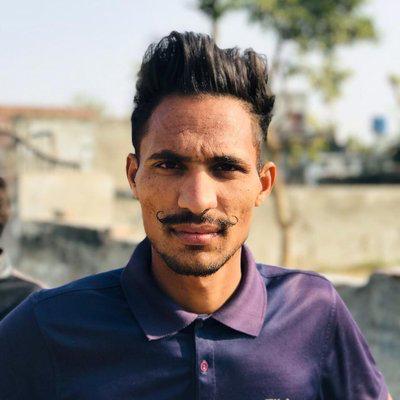For the past three months, Upkaran Deep Singh has woken up inside his small tent perched on Singhu Border, one of India’s busiest highways just north of Delhi, and almost immediately picks up his phone.

The 23-year-old farmer scrolls through social media looking for the latest updates, as well as any misinformation, on the farmers’ protest.
He then experiences two emotions: anger at seeing the negative angle cast upon farmers, then joy at the supportive messages coming from abroad, including Canada.
“Every single country’s media has covered this story more truthfully than our own media,” Upkaran Deep Singh told Global News.
“People in Canada, in the U.S., they are saying the truth, they make us feel like this matters.”
Local media organizations have been criticized for strong political affiliations to the ruling Bharatiya Janata Party. As a result, the coverage in India has been skewed to make farmers seem as though they are against India’s economic uprising, which is not the case.
Upkaran Deep Singh is just one of an estimated 300,000 farmers protesting three government bills, which they dub anti-farmer and pro-corporation. The bills, which have already passed, eliminate the mandi system, which ensures farmers are paid a guaranteed minimum for their crops.
- Posters promoting ‘Steal From Loblaws Day’ are circulating. How did we get here?
- Video shows Ontario police sharing Trudeau’s location with protester, investigation launched
- Canadian food banks are on the brink: ‘This is not a sustainable situation’
- Solar eclipse eye damage: More than 160 cases reported in Ontario, Quebec
The bills also seek to privatize farming, which would squash smaller farmers, according to India’s former chief economic adviser, as many farmers have little education or ability to shift to a new career.
The protests have also led to violence between the Indian government and protesters, including on Jan. 26 that left at least one protester dead and hundreds injured. Following the attacks, there have been less violent tactics used to disrupt the protests.
The majority of protesters and leaders have stated they want a peaceful resolution and are happy the focus is now back on their demands. Their message has always been to be involved with negotiations about the future of the farming industry, to cancel the bills and maintain minimum standard prices.
Indian Prime Minister Narendra Modi’s government has been steadfast in its belief that the bills would be creating free market competition by allowing farmers to sell directly to buyers and avoid the wholesale market which would benefit farmers. However, despite the government’s desires to engage farmers in conversations, they were also simultaneously cracking down on dissidents. So far, the government has used a range of tactics including arresting journalists covering the protests and calling on Twitter to suspend accounts with opposing views.
There’s been a proliferation of support though from places like Brampton, Ont. and Surrey, B.C., two cities which are home to hundreds of thousands of Sikhs whose families in India are disproportionately affected by the bills.
Brampton resident Jaskaran Sandhu is an executive member of the World Sikh Organization and co-founder of Baaz News, a news outlet launched to counter the misinformation against farmers’ protests and Sikhs. He has been vocal about the transgressions of the Indian government towards his friends and family, many of whom rely on farming as their sole income.
“I have family, friends and loved ones that are living there who are farmers. Some of them are at the protests and we’ve seen how poorly they’ve been treated by the government,” he said.
Thousands of people in Canada have been attending protests and car rallies across a number of Canadian cities.
Sandhu has been in constant communication with people on the frontlines of the protests since November to better understand how those in diasporic communities can help amplify their struggle. He told Global News that non-South Asian people were largely unaware of how Indian media and the government was operating to vilify farmers, and have thanked him for educating them by speaking out.
On a number of occasions Prime Minister Justin Trudeau has backed the farmers rights to peacefully protest, but was met with pushback from the Indian government. Singh recalled that after Trudeau first publicly gave his support in December, there was a sense of calm and relief amongst protestors that Canada was paying close attention to the situation.
Sandeep Singh, no relation to Upkaran Deep Singh, is one of the few local journalists on the ground reporting from the protest encampment.

“(Indian farmers) acknowledge Trudeau talked about them…they know their voice has been raised on an international platform and that other governments are now watching,” said Sandeep Singh.
Global News contacted Global Affairs Canada and the Indian Ministry of External Affairs for comment, but did not receive a response from either.
Sandeep Singh fears his coverage, which favours the farmers’ concerns, could land him in trouble.
“I was worried, (because) the government is known for jailing activists, for jailing journalists under the national security act,” he said.
However, Sandeep Singh understood the importance of reporting on this protest, due to its sheer scale, he believed this moment in history would be bigger than any other India has faced in decades.
The majority of his followers are non-resident Indians, and he noted the constant support online from Canadians has been felt by those on the ground in Delhi, who have told him that reading positive and supportive messages can make the toughest days seem easier.
“Farmers tell me that ‘Look, we’re not alone, our brothers in other countries still care about us — they will raise our voice,’” he said.




Comments